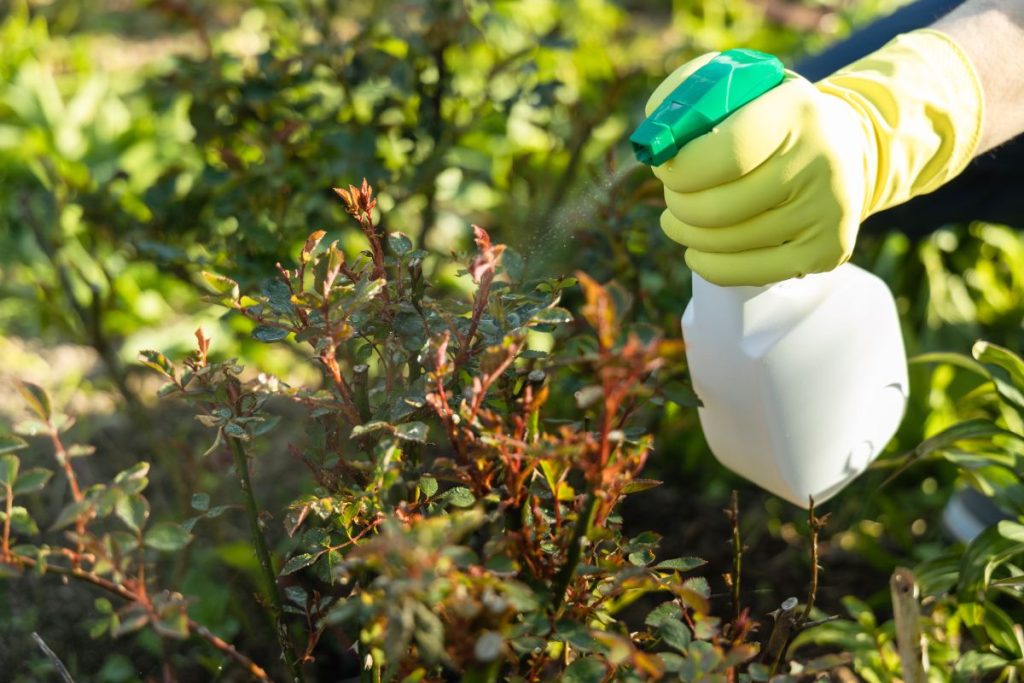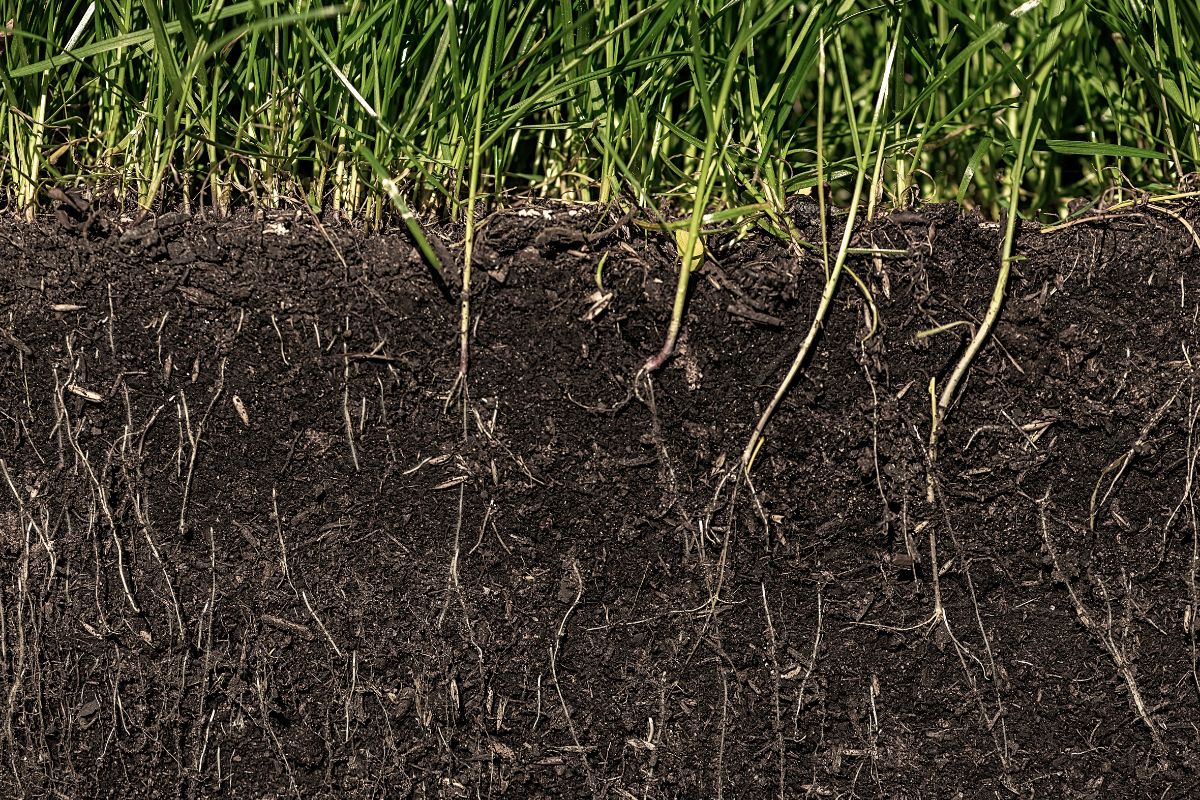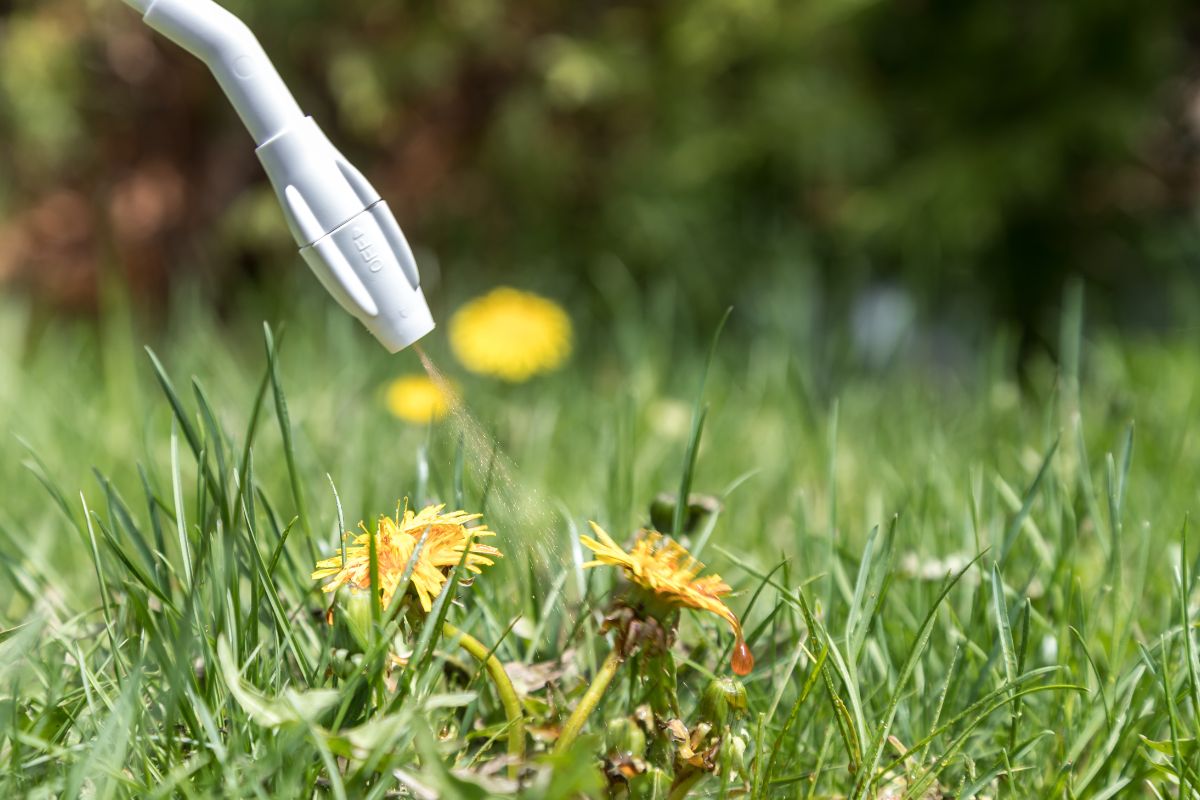
Keeping your yard free of weeds can feel like an endless battle, especially in a place like Rockford. But what if you could stop weeds before they even have a chance to grow? With a little planning and some smart strategies, you can create a landscape that’s not only beautiful but also weed-resistant. This guide will walk you through practical tips and techniques to keep those pesky weeds at bay.
Key Takeaways
- Healthy soil is your first defense against weeds.
- Mulching and cover crops can block weed growth naturally.
- Native plants can outcompete weeds while looking great.
- Pre-emergent herbicides work best when timed right.
- Consistent lawn care keeps weeds from gaining ground.
Understanding the Root Causes of Weed Growth

The Role of Soil Health in Weed Prevention
Healthy soil is the foundation of a thriving garden and a weed-free lawn. When soil is rich in nutrients and properly balanced, it promotes strong plant growth, leaving little room for weeds to take over. In contrast, weeds tend to flourish in poor soil conditions, where nutrients are lacking, or the pH is off balance. Regular soil testing can help identify any deficiencies, allowing you to make necessary adjustments. Enhancing organic matter with compost keeps the soil fertile and discourages weed growth. Additionally, proper watering plays a crucial role in maintaining soil health—our Lawn Irrigation Services ensure consistent moisture levels, preventing stress on your plants while keeping your lawn resilient against weeds.
Stop Weeds Before They Take Over! Keep your yard looking its best with our expert weed control and Yard Clean Up Services. Call us today for a consultation!
How Climate and Seasons Affect Weed Emergence
In Rockford, the changing seasons play a big role in weed growth. Spring and fall tend to be the most active times for weeds due to moderate temperatures and increased moisture. Summer heat may slow down some species, but others, like crabgrass, thrive in the heat. Understanding these cycles can help you plan your weed control efforts more effectively. Keep in mind that some weeds, such as dandelions, are perennial and will pop up year after year.
Common Weed Species Found in Rockford
Rockford has its fair share of pesky weeds. Some common ones include:
- Crabgrass: A summer annual weed that spreads quickly in sunny areas.
- Dandelions: Perennials that are easily recognized by their yellow flowers and fluffy seed heads.
- Chickweed: A winter annual that thrives in cool, damp conditions.
Knowing what you’re up against makes it easier to target specific weeds. For example, mowing the lawn too short can encourage crabgrass to spread, so maintaining proper lawn height is crucial. Identifying the weeds in your yard is the first step toward managing them effectively.
A little prevention goes a long way. By understanding why weeds grow, you can tackle the problem before it starts, creating a healthier, more beautiful landscape.
Proactive Soil Management Techniques
The Benefits of Mulching for Weed Control
Mulching is like giving your soil a protective blanket. It keeps the ground moist, regulates temperature, and most importantly, blocks sunlight from reaching weed seeds. This simple step can dramatically cut down on weed growth. Organic mulches, like wood chips or straw, even break down over time to enrich your soil. For best results, spread mulch about 2-3 inches thick around your plants, but keep it away from the stems to avoid rot.
How to Test and Amend Your Soil for Optimal Health
Healthy soil is the foundation of a weed-free landscape. Start by testing your soil to check pH levels and nutrient content. You can grab a simple test kit from any garden center. If the results show deficiencies, amend the soil with compost, lime, or other additives. Balanced soil not only supports your plants but also makes it harder for weeds to thrive. Remember, good soil is like a fortress—it keeps the invaders out.
Using Cover Crops to Suppress Weed Growth
Cover crops are like nature’s weed fighters. Plants like clover, rye, or vetch grow quickly and create a dense canopy, smothering weeds before they even have a chance to sprout. They also improve soil health by adding organic matter and fixing nitrogen. To use cover crops effectively, plant them in the off-season or between rows in your garden. Once they’re done growing, you can till them into the soil for an added nutrient boost.
A little effort in soil management goes a long way. By focusing on your soil’s health, you’re not just preventing weeds—you’re setting the stage for a thriving, beautiful garden.
For more on keeping your lawn healthy and weed-free, proper mowing techniques like cutting grass at the right height can make a big difference. Shading the soil helps block sunlight from reaching weed seeds, giving you a head start in the fight against weeds.
Strategic Landscaping to Deter Weeds
Choosing Native Plants to Outcompete Weeds
One of the smartest moves you can make is planting native species. Why? Because they’re already adapted to the local environment, meaning they can grow strong and crowd out weeds naturally. Native plants tend to require less maintenance, and they thrive without extra fertilizers or water. Some great native options for Rockford include prairie grasses and wildflowers like Black-Eyed Susans. When they take over the space, weeds don’t stand a chance.
Designing Garden Beds for Maximum Weed Resistance
The way you design your garden can make or break your weed control efforts. Raised beds, for example, are a great way to keep weeds out. They let you control soil quality and create a clear barrier against invasive plants. Another tip? Use landscape fabric under your beds to block weeds from creeping up. And don’t forget to edge your garden beds with bricks or stones—it’s a simple way to create a physical barrier that weeds can’t easily cross.
The Importance of Proper Spacing in Planting
It might seem small, but spacing your plants correctly is a big deal. When plants are too far apart, they leave open soil for weeds to move in. On the flip side, if plants are too close, they compete for sunlight and nutrients, which can make them weak. Aim for a happy medium, where plants have just enough room to grow but still form a dense canopy to block sunlight from reaching weeds. This balance makes all the difference.
Thoughtful landscaping isn’t just about looks—it’s about working smarter to keep weeds out of your yard. A little planning now can save you hours of pulling weeds later.
If you’re looking to grow fresh, flavorful vegetables this summer, understanding the right planting techniques is key. A Guide to Warm Season Veggie Crops in Rockford can help you navigate everything from choosing the best crops to maintaining healthy soil and managing Rockford’s unique climate challenges. With the right preparation, you can enjoy a thriving garden filled with tomatoes, peppers, squash, and more—all while making the most of the warm growing season.
Effective Use of Pre-Emergent Herbicides

How Pre-Emergent Herbicides Work
Pre-emergent herbicides act as a barrier, stopping weed seeds from sprouting before they even get the chance to grow. They don’t kill existing weeds, so timing is everything. The herbicide creates a protective layer in the soil, which disrupts the germination process of weeds. Think of it as a preemptive strike against unwanted plants.
Timing Applications for Best Results
Timing is the key to success with pre-emergent herbicides. In Rockford, the ideal window for application is mid- to late March, just before the growing season kicks off. This ensures the herbicide is in place when weed seeds start to germinate. For lawns and gardens, follow these steps:
- Clear away any existing weeds or debris.
- Apply the herbicide evenly across the soil surface.
- Water the area lightly to activate the herbicide.
For lawns in Illinois, apply pre-emergent weed control during early spring to tackle weed seeds before they sprout.
Safety Tips for Using Herbicides in Residential Areas
When using herbicides, safety should always come first. Here are a few tips to keep in mind:
- Wear gloves and protective clothing to avoid skin contact.
- Keep children and pets away from treated areas until the herbicide has settled.
- Follow the product’s label instructions carefully, especially regarding dosage and application.
Pre-emergent herbicides are a proactive way to maintain a weed-free landscape, but they require proper application and timing to be effective.
Natural Alternatives to Chemical Weed Control
Using Organic Mulches to Block Weed Growth
Organic mulches, like shredded bark or straw, are a great first line of defense against weeds. By covering the soil, they block sunlight, making it hard for weed seeds to sprout. Plus, as they break down, they enrich the soil with nutrients. A good layer—about 2-3 inches—around your plants can make a noticeable difference. Just be careful not to pile it up against tree trunks or stems, as that can invite pests.
The Role of Vinegar and Other Natural Solutions
If you’re looking for a quick and natural way to kill weeds, vinegar can do the trick. Mix white vinegar with a bit of salt and liquid dish soap, and you’ve got yourself a homemade weed killer. This mixture is effective for spot-treating pesky weeds in sidewalks or driveways. However, be cautious—this solution can harm your desired plants too, so apply it carefully. For more details on this method, check out this natural weed control recipe.
Encouraging Beneficial Insects to Manage Weeds
Surprisingly, some insects can help in the fight against weeds. Ground beetles and certain types of weevils feed on weed seeds, reducing their chances of germinating. To attract these helpful bugs, plant a variety of native flowers and shrubs. They not only add beauty to your garden but also create a habitat for these tiny allies. Think of it as letting nature lend a hand in keeping weeds at bay.
Natural methods might take a bit more effort than chemical herbicides, but they’re safer for your family, pets, and the environment. Plus, they often come with added benefits, like healthier soil and thriving plants.
Maintaining a Consistent Lawn Care Routine
The Importance of Regular Mowing and Edging
Keeping your lawn neat isn’t just about looks—it’s about health. Regular mowing helps prevent weeds by keeping grass dense and strong, which means fewer gaps for weeds to sneak through. Aim to cut your grass to the right height for its type—too short, and you stress it out; too long, and it gets messy. Don’t forget edging along walkways and flower beds. It creates a clean barrier, making it harder for weeds to cross over into your lawn.
How Aeration Helps Prevent Weed Infestation
Aeration might sound fancy, but it’s just poking little holes in your lawn. This allows air, water, and nutrients to reach the soil better. When your grass roots are healthy and deep, they outcompete weeds. You can rent a simple aerator or hire someone to do it. Early spring or fall is the best time to aerate, especially if the soil feels compacted or your lawn gets a lot of foot traffic.
Watering Techniques to Discourage Weed Growth
Watering your lawn isn’t as simple as turning on the sprinkler. Overwatering creates soggy soil, which some weeds love, while underwatering stresses your grass, leaving it vulnerable. The trick? Water deeply but less often. Early morning is the best time to water so the grass can dry during the day, reducing the chance of disease. A good rule of thumb is about 1 inch of water per week, including rainfall.
A healthy lawn is your first line of defense against weeds. It’s not about perfection—it’s about building a yard that’s tough enough to keep weeds at bay without constant battles.
Community Efforts to Keep Rockford Weed-Free
Organizing Neighborhood Weed Control Initiatives
Getting your neighbors involved can make a huge difference in keeping weeds at bay. A small group effort can quickly grow into a community-wide movement. Start by hosting a weekend event where everyone pitches in to clear common areas or problem spots. Supply gloves, tools, and maybe even snacks to keep morale high. The collective effort not only tackles weeds but also builds a stronger sense of community.
Educational Programs on Weed Prevention
Sometimes, people just don’t know how to manage weeds effectively. Hosting workshops or informational sessions can be a game-changer. Invite local gardening experts to share tips on soil health, mulching, and weed identification. You could also hand out simple guides for maintaining a weed-free lawn. These programs are especially helpful for new homeowners who might feel overwhelmed by their landscaping challenges.
Collaborating with Local Authorities for Public Spaces
Public parks, sidewalks, and other shared spaces can quickly become overrun with weeds if left unchecked. Partner with local authorities to set up regular maintenance schedules or organize volunteer days for cleanup. You might even advocate for funding to use eco-friendly pre-emergent herbicides in these areas. Consistent upkeep not only keeps the city looking good but also prevents weeds from spreading into nearby residential yards.
When a community comes together to tackle a shared problem like weeds, it’s amazing what can be accomplished. It’s not just about cleaner spaces—it’s about pride in where you live.
For tailored solutions to achieve a weed-free lawn, consider exploring fertilizer and weed control services designed for your region. These services often include free inspections to ensure optimal turf health.
Wrapping It Up
Keeping weeds out of your yard in Rockford doesn’t have to be a never-ending battle. By taking some simple steps, like using mulch, planting ground covers, and staying on top of maintenance, you can stop weeds before they even have a chance to show up. Sure, it might take a little effort upfront, but trust me, it’s worth it. A weed-free yard not only looks great but also saves you time and headaches down the road. So, grab your gloves, make a plan, and get started. Your future self will thank you!
Frequently Asked Questions
What are some easy ways to stop weeds before they grow?
You can use mulch, plant cover crops, and keep your soil healthy to prevent weeds from growing.
Why does soil health matter when it comes to weeds?
Healthy soil makes it harder for weeds to grow because your plants will take up most of the nutrients and space.
When should I use pre-emergent herbicides?
Pre-emergent herbicides work best when you apply them early in the growing season, before weeds start to sprout.
Are there natural ways to control weeds without chemicals?
Yes, you can use organic mulch, vinegar, or even encourage helpful insects to keep weeds in check.
How can I keep my lawn free of weeds?
Regular mowing, proper watering, and aerating your lawn can help keep weeds away.
Can we stop weeds in public areas as a community?
Yes, by organizing neighborhood clean-ups, educating people about weed control, and working with local authorities, we can reduce weeds in public spaces.
Say Goodbye to Weeds for Good! With our expert solutions, we’ll help you create a low-maintenance, weed-resistant yard. Call us now to schedule your yard cleanup!

